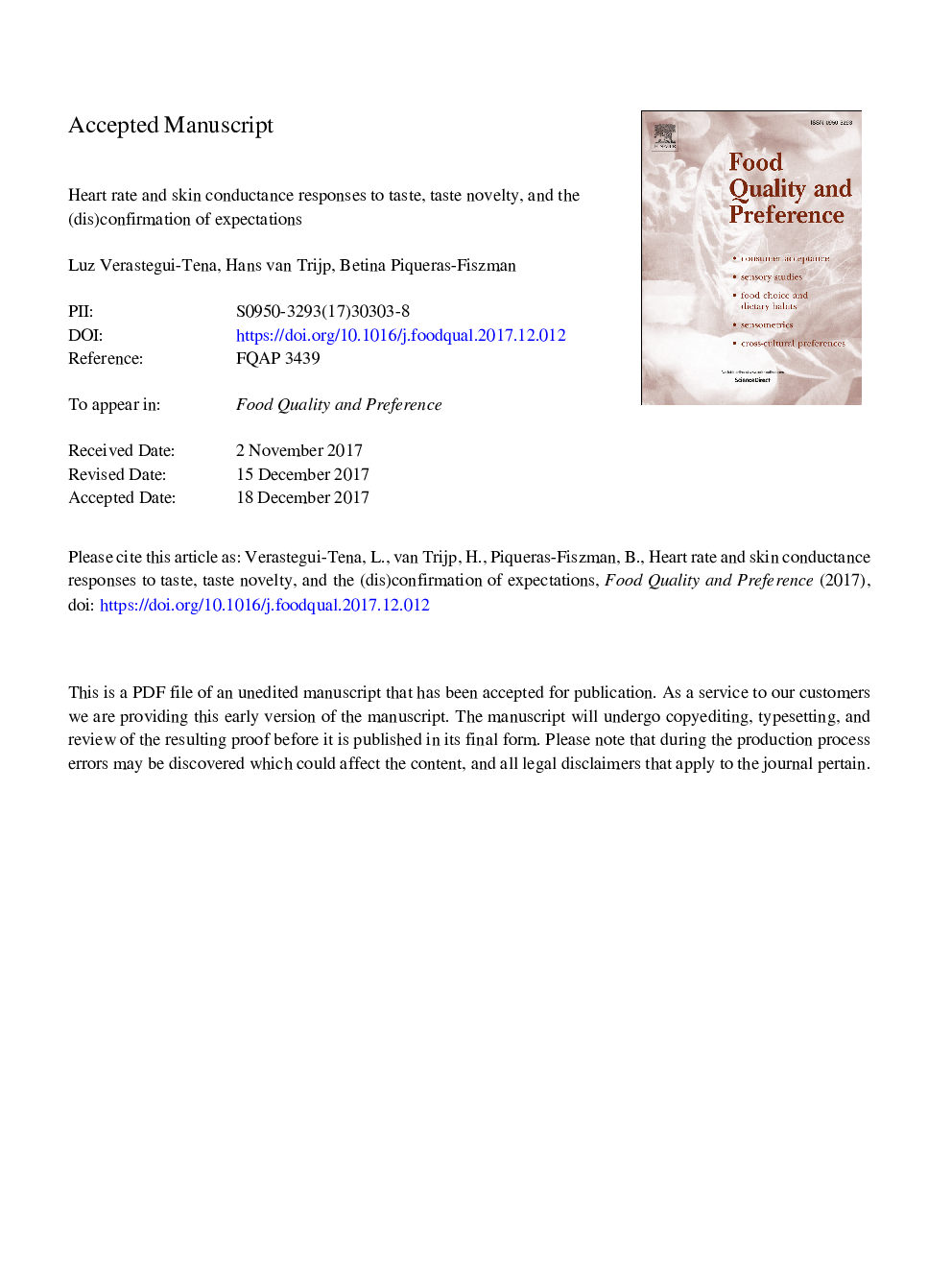| Article ID | Journal | Published Year | Pages | File Type |
|---|---|---|---|---|
| 8838533 | Food Quality and Preference | 2018 | 28 Pages |
Abstract
A hundred and fifty-five participants joined this study. They tasted samples of different valence (sweet and bitter) twice: the first time without knowing the taste and the second while being informed of the taste. After this first block, participants tasted two additional samples: one that confirmed expectations and one that disconfirmed them. Heart rate and skin conductance were measured. Results show that the second experience with a taste led to cardiac deceleration. Heart rate changes were only related to valence when participants' expectations were (dis)confirmed. Heart rate decreased for those tastes that disconfirmed expectations and increased for those that confirmed them and the sweet sample had larger increases in heart rate than the bitter. Skin conductance changed in regards to novelty and valence but not to the disconfirmation of expectations. It increased for the bitter sample, decreased for the sweet, and was always higher during the first experience than during the second. In conclusion, the results suggest that cardiac responses are more sensitive to novelty and the disconfirmation of expectations while skin conductance responses capture novelty and valence.
Related Topics
Life Sciences
Agricultural and Biological Sciences
Food Science
Authors
Luz Verastegui-Tena, Hans van Trijp, Betina Piqueras-Fiszman,
